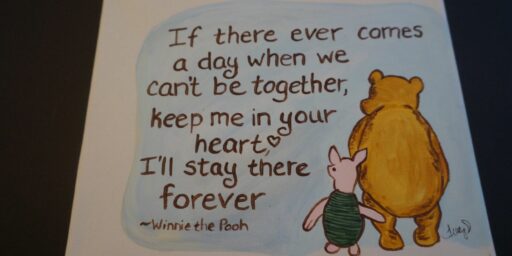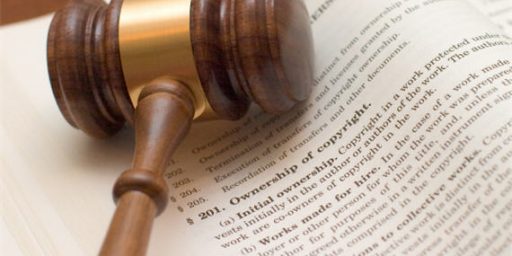C-SPAN Changes Copyright Policy after Pelosi Flap
C-SPAN has changes its copyright policy after a flap over Nancy Pelosi’s use of their video.
It turns out that Republicans were right: House Speaker Nancy Pelosi did violate C-SPAN’s copyright by using its televised footage on her blog promoting Democrats. Officials for the cable TV network that provides daily gavel-to-gavel coverage of House and Senate proceedings at first said the blog was in violation, then announced it wasn’t. On Wednesday, they said that it was but that they’re changing their policy so that it won’t be in the future.
The new copyright policy will allow non-commercial Internet users to share and post C-SPAN video as long as they attribute it to the public service channel. “Given our background and our history, an open approach is the most consistent with our mission,” said Rob Kennedy, C-SPAN’s president. “We are now saying under the new policy that that will be OK, for her or any blogger or citizen journalist” to post C-SPAN video online.
Indeed, the idea that the televised proceedings of the House of Representatives should be copyrighted, let alone that the Speaker of the House wouldn’t have fair use rights, is idiotic. For reasons of efficiency, C-SPAN is the only media outlet allowed to videotape and broadcast the daily proceedings of Congress. If they’re going to have the right to restrict the use of that material, that privilege should be rescinded.
Kennedy’s statement and the report are somewhat at odds. He says “any blogger or citizen journalist” will have the right to post C-SPAN content. Yet the report says only “non-commercial Internet users” will have this right. Given that most blogs have advertising, are we “non-commercial”? Or are even commercial blogs covered but some types of commercial enterprises not?





Jeff Jarvis quotes Broadcasting & Cable with a little more info, though it’s still a bit hazy:
C-SPAN said Wednesday it would allow “non-commercial copying, sharing and posting of C-SPAN video on the Internet, with attribution,†of its past and future coverage of “official events sponsored by Congress and any federal agency,†applying what it calls an approach similar to the “Creative Commons†approach to copyright. . . .
There is no limit to the amount of material that can be used, though it must be for generally noncommercial purposes. YouTube has ads, for example, but the footage can be posted on the site with credit. “As long as there is not a direct connection between revenue on the site and the C-SPAN content,†says Rob Kennedy, C-SPAN president/co-COO.
Unless we require visitors to pay to watch the videos on our sites, I think we’re good to go.
Unless we require visitors to pay to watch the videos on our sites, I think we’re good to go.
Thanks. And that’s more than fair, I think.
While I don’t think C-SPAN should have exclusive rights to its taped coverage of Congress (as opposed to their talk shows, Booknotes, and the like) I agree that no one else should be able to repackage their work and directly re-sell it.
The whole concept of intellectual property is deeply flawed and we’d be far better off getting rid of it. restore property to the original meaning: physical materials.
Yes it means a major overhaul of how many businesses work. The end result will be better, that’s all that matters.
The whole concept of intellectual property is deeply flawed and we’d be far better off getting rid of it. restore property to the original meaning: physical materials.
At least as far back as the writing of the U.S. Constitution, there was recognition of patents and copyrights. They’re simply fundamental to economic progress.
Why would anyone bother to create anything if it can then be simply taken by others without payment?